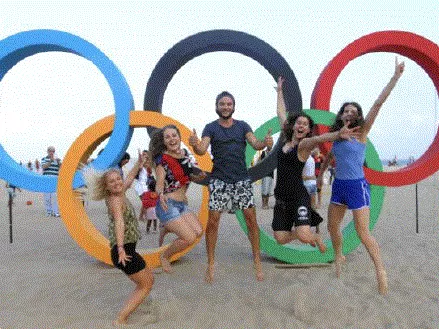Background and objective
The IOC has been accused of not adequately adopting these rights and their broader meaning in the Olympic Charter. Within the context of the Olympic Games, there are various examples that provide suggestive evidence for the IOC’s lenient interpretation of whether, and how, potential and actual host countries of the Olympic Games should install measures to protect and promote human rights.
The present study is concerned with potential consumers as stakeholders, following the Olympic Games either in the media or as tourists on-site. Two samples from the U.S. were surveyed. In Study 1, participants were informed about the potential hosting of the Olympic Games in countries outside the U.S. with reportedly high-severity vs. low-severity violations of human rights (experimental manipulation). Study 2 referred to the Los Angeles 2028 Olympic Games and framed the U.S. as a country with either high- or low- severity violations of human rights. It also assessed consumer knowledge about human rights issues and country image.
Results
Attitude toward the Olympic Games was lower in the high (vs. low) severity conditions in both studies. Path modeling results showed that two of the three Olympic value factors predicted consumer attitude in the high (but not in the low) severity conditions, and that attitude as well as some value factors related to intentions to follow the event in both studies.
Implications
Human rights issues in host countries have negative effects on consumer evaluations. While consumers might still follow the event, value perceptions are important when violations are severe. This makes ethical concerns salient and affects the Olympic Movement – a movement that is more and more dealing with a loss-of-value perception in the general population.
Contact
Department of Sport and Health Management
Prof. Dr. Joerg Koenigstorfer
Uptown München Campus D
Georg-Brauchle-Ring 60/62
80992 München
Tel. +49.89.289.24558
Fax +49.89.289.24642
info.mgt@sg.tum.de
